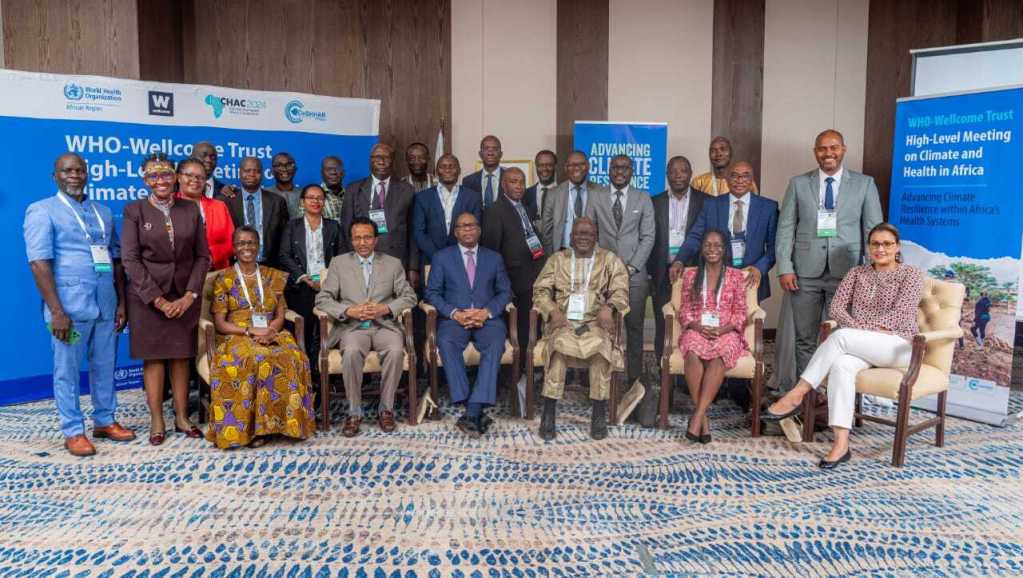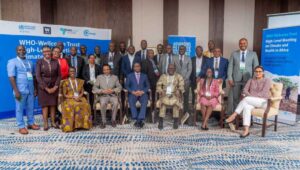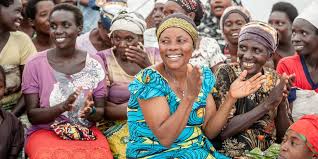
African health ministers, delegates adopt declaration on climate change and health
- Climate ChangeInternational News
- No Comment
- 175

Health ministers and delegates from 20 African countries today adopted a landmark declaration to enhance climate resilience within health systems and address the profound health impacts of climate change on the continent.
The Harare Declaration, endorsed during the first Climate and Health Africa Conference (CHAC), calls for immediate and collaborative action from a wide array of stakeholders—including governments, academic institutions, funding agencies and civil society—to combat the detrimental health effects of climate change and improve the well-being of African populations.
Speaking at the official opening of the conference, President Emmerson Mnangagwa of Zimbabwe said, “Climate change is not merely an environmental disaster. It is a public health emergency and I firmly believe the recommendations from this conference will pave the way for a healthier and more sustainable continent, where no one and no place is left behind”.
The declaration which aligns with the newly WHO adopted framework for building climate-resilient and sustainable health systems in the African region, was endorsed by health ministers and representatives from countries engaged in the WHO-led Alliance for Transformative Action on Climate and Health Initiative (ATACH) and over 500 participants at CHAC.
“Our region deals with multiple climate-induced emergencies every year. Ensuring health systems resilience is key. I applaud the commitments taken by health policy makers to build climate-resilient health systems that can adapt to and mitigate the impacts of climate change,” said Dr Matshidiso Moeti, WHO Regional Director for Africa.
Africa faces an escalating burden of climate-sensitive diseases, with increasing transmission of vector- and waterborne illnesses. Recent statistics reveal a 14% rise in malaria transmissions in 2023, potentially putting an additional 147-171 million people at risk by 2030. Additionally, 18 African countries reported cholera outbreaks linked to natural disasters, contributing to a staggering 836 600 cases between January 2023 and March 2024, alongside widespread malnutrition and population displacement.
Recognizing the disproportionate burden of climate-related health risks faced by African populations, the declaration presents a comprehensive strategy to address these challenges. It emphasizes the need to strengthen research and knowledge generation by investing in studies that assess the specific impacts of climate change on health in Africa and identify effective interventions. Enhancing policy and decision-making is also crucial by integrating climate change considerations into national health policies and strategies to ensure that health is prioritized in climate action plans.
The declaration also highlights the importance of improving surveillance and early warning systems to track climate-related health risks, enabling timely and effective responses.
Additionally, it calls for building climate-resilient health systems by enhancing the capacity of health infrastructures to adapt to and mitigate the impacts of climate change, including through necessary upgrades and workforce training.
During CHAC, the WHO Regional Office for Africa, in collaboration with the Wellcome Trust, hosted a high-level meeting to promote collaboration among health and climate stakeholders. The meeting was an opportunity to evaluate countries implementation of past Conference of the Parties (COP) commitments and define a roadmap for climate and health in Africa.
With support from WHO, 29 African countries have joined ATACH, signaling dedication to safeguarding the health and well-being of their population. The WHO-Wellcome Trust side event provided delegates with a platform to discuss actionable strategies for integrating health priorities into global climate frameworks and strengthening inter-ministerial collaboration.
The Climate and Health Africa conference is hosted by the Centre for Sexual Health, HIV and AIDS Research (CeSHHAR) Zimbabwe in collaboration with the Zimbabwean Ministry of Environment, Climate and Wildlife, the Ministry of Health and Child Care and the WHO Regional Office for Africa amongst other partners.
Distributed by APO Group on behalf of WHO Regional Office for Africa.





